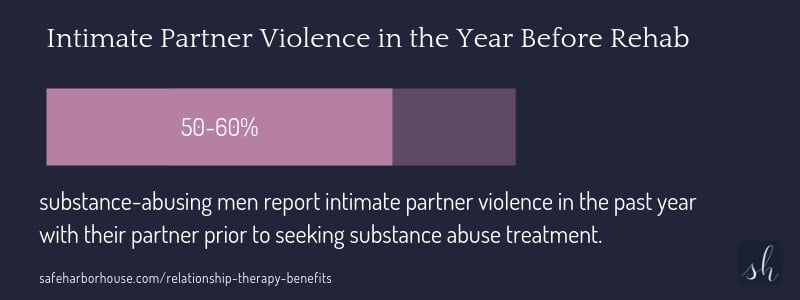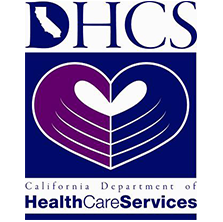Benefits of Relationship Therapy in Treating Trauma and Addiction
Sex and relationship therapy are an option for all people, but maybe especially beneficial to those who have struggled with substance abuse or have a history of trauma, including sexual abuse and abusive relationships. This therapy option may be performed as a couples’ therapy, where both partners attend or as a single individual who wishes to enhance their future relationships.
What Is Sex and Relationship Therapy?
variety of therapy options exist. Sex therapy is a counseling form that addresses sexual problems in a relationship. This can include performance anxiety or fear of engaging in the act itself.(3) According to Healthline, an estimated 43 percent of women and 31 percent of men report experiencing sexual dysfunction at some point in their lifetimes. _4)
Sex therapy isn’t designed to actually have any sexual contact or activity between client and therapist. Instead, it is “talk therapy” that involves discussing concerns that may include: (3)
•discussing sexual concerns
•exploring sexual beliefs
•overall health
•sexual background
•sexual education

The goals of sex therapy are to enhance communication between partners, educate a person on anatomy and their body, and how to build trust in their relationships.
Relationship therapy is also about enhancing communication. The therapy involves addressing current conflicts, roadblocks, and difficulties in a relationship to move forward as a couple. Relationship therapy, even for those with a history of substance abuse, isn’t all a one-sided discussion about the person with a history of substance abuse . Instead it is about moving forward together as a couple.
WHY AN INDIVIDUAL MIGHT RECEIVE RELATIONSHIP COUNSELING
Not only people in a relationship need relationship or sexual counseling. This type of counseling may be recommended because there is a history of trauma. This includes a sexual assault, violent relationships, or sexual abuse sexual assault, violent relationships, or sexual abuse as a child or young person. 1 Each of these aspects of a person’s history can affect their ability to maintain successful relationships later in life. If a person doesn’t overcome and learn how to deal with these past occurrences, they may not be able to successfully navigate and fully enjoy future relationships.
How Does Substance Abuse Affect Relationships?
Substance abuse affects not only the person abusing drugs or alcohol, but also their partner. 2 According to the American Association for Marriage and Family Therapy, the partner of a person who suffers from substance abuse is typically more unhappy than couples who are currently seeking therapy and don’t have a substance abuse history.
Some of the common relationship troubles of a couple who has at least one partner suffering from substance abuse includes:
•increased amount of fights, which can sometimes become violent
•emotional distance between the partners
•less time spent together as a couple
Relationship Therapy in Treating Trauma and Addiction – intimate partner violence in the past year
According to the Journal of Behavioral Analysis, an estimated 50 to 60 percent of substance-abusing men report intimate partner violence in the past year with their partner prior to seeking substance abuse treatment. 1 This shows that couples are not only at risk for mental instability, but also physical harm.
Conflicts regarding a partner’s substance abuse can often lead to a vicious cycle. This means that partners may argue over one’s drinking or drug use. This may lead the partner to drink or abuse drugs more as a stress reliever. 2 Because the person is continuing to abuse drugs or alcohol, this leads to further conflicts. Often, if a couple does not seek help for their relationship problems, their relationship cannot survive, even if the partner becomes sober.
Do We Need Relationship Counseling?

Sometimes, when a couple is in a relationship and going about their daily lives, they may not recognize the problems that are growing and building. By taking a step back and performing a personal inventory of a couple’s relationship, they may be able to recognize ways they can benefit from counseling. 2
Signs a couple may benefit from sex and relationship counseling include:
•frequent arguments about substance abuse, and how it has affected responsibilities, such as staying out late, having trouble paying bills, or not taking care of other responsibilities at home
•a partner feeling like they always have to cover for the other constantly, such as making excuses for a partner to friends, family, or a boss
•a partner says he or she uses drugs or alcohol as a means to cope with relationship stresses
substance abuse leading to violence or severe arguments
Not all couples have to come to these “boiling points” before they seek help. If a couple thinks they could benefit from counseling, they likely can.
How Is Relationship Therapy Used to Treat Trauma and Addiction?
When a person continues their relationship after trauma or addiction, there are typically reoccurring concerns that must be healed. 3 Examples include how to stop nagging or reminiscing about problems before when the person was using drugs. Also, its vital to learn how to not overlook or ignore behaviors that could indicate that they or their partner is heading toward a relapse.
Couples must learn to support and encourage each other to build a successful relationship. This is the goal of relationship therapy. In addition to completing relationship therapy, those with a history of substance abuse are encouraged to participate in outside therapy sessions, such as self-help meetings like Alcoholics Anonymous or Narcotics Anonymous.
Couples will often begin relationship therapy by agreeing to only talk about past drinking or drug abuse or fears over a partner’s substance abuse in a therapy setting.1 Ideally, this helps to reduce stress that a partner may feel as they try to move forward with their life and remain sober. This is known as a Recovery Contract, which can help to build trust between partners.
How Effective Is Relationship Therapy in Treating Trauma and Addiction?
According to the American Association for Marriage and Family Therapy, research has shown that involving a partner in substance abuse treatment in some way can help a person struggling with substance abuse succeed in recovery. 2
According to an article published in the Journal of Behavioral Analysis, there is “compelling evidence” for the effectiveness of behavioral couple’s therapy in couples who have a history of substance abuse.1 The journal cites studies that have taken place over the past 30 years that have found couples who participate in therapy post-treatment have a pattern of:
•fewer alcohol-related conflicts
•happier relationships
•reduced risks for marital separation compared to those who haven’t participated in counseling
While much of the body of research regarding relationship counseling and substance abuse is regarding those who suffer from alcoholism, additional research has supported relationship counseling for other substance abuse types.3 One study of married or co-habitating clients who participated in couples’ therapy found the following benefits:
•fewer days of drug use
•fewer occurrences of hospitalizations and arrests
longer time to relapse
This research shows promise in not only enhancing relationships, but also in promoting prolonged sobriety.(1)
Participating in relationships counseling has also been proven to reduce intimate partner violence and abuse. According to a study of 80 couples, the number of families reporting a violent episode one year after relationship therapy is 17 percent compared to individuals who went through treatment alone at 42 percent. 1 This shows that partner counseling can be a key in enhancing a person’s success in recovery when they’re in a relationship.
How Can I Find a Relationship Therapist?
If a person is currently seeking substance abuse help, they can talk to their drug abuse treatment program about potential relationship and family counseling.2 If the treatment program does not specifically offer these programs, they can often recommend a therapist that does.
In addition, anyone can visit websites, such as the American Association for Marriage and Family Therapy , which has a “Therapist Locator” function in their website. Another option is the International Society for Sexual Medicine .
While relationship therapy can represent a cost that may or may not be covered by insurance, studies have shown the investment is well worth the cost. For every dollar spent on behavioral couple’s therapy, a person saves $5.97 in health care and legal fees.1 Therefore, couples therapy and finding the right therapist can be an investment worth making.
Even when a person with a history of substance abuse has become sober, the problems they had with their relationships doesn’t go away. 2 The same is true for a person with a history of trauma. It’s important to address the underlying reasons behind continued conflict in relationships. Failing to do so could potentially contribute to a later relapse.
There is a progression that often goes with relationship or sex counseling. When substance abuse is an issue, a person must first address the addiction. When they have gone through withdrawals and remained sober for some time, they can start to address their sex and relationship concerns. Doing so can increase the likelihood that a person will stay sober long-term.
Resources




